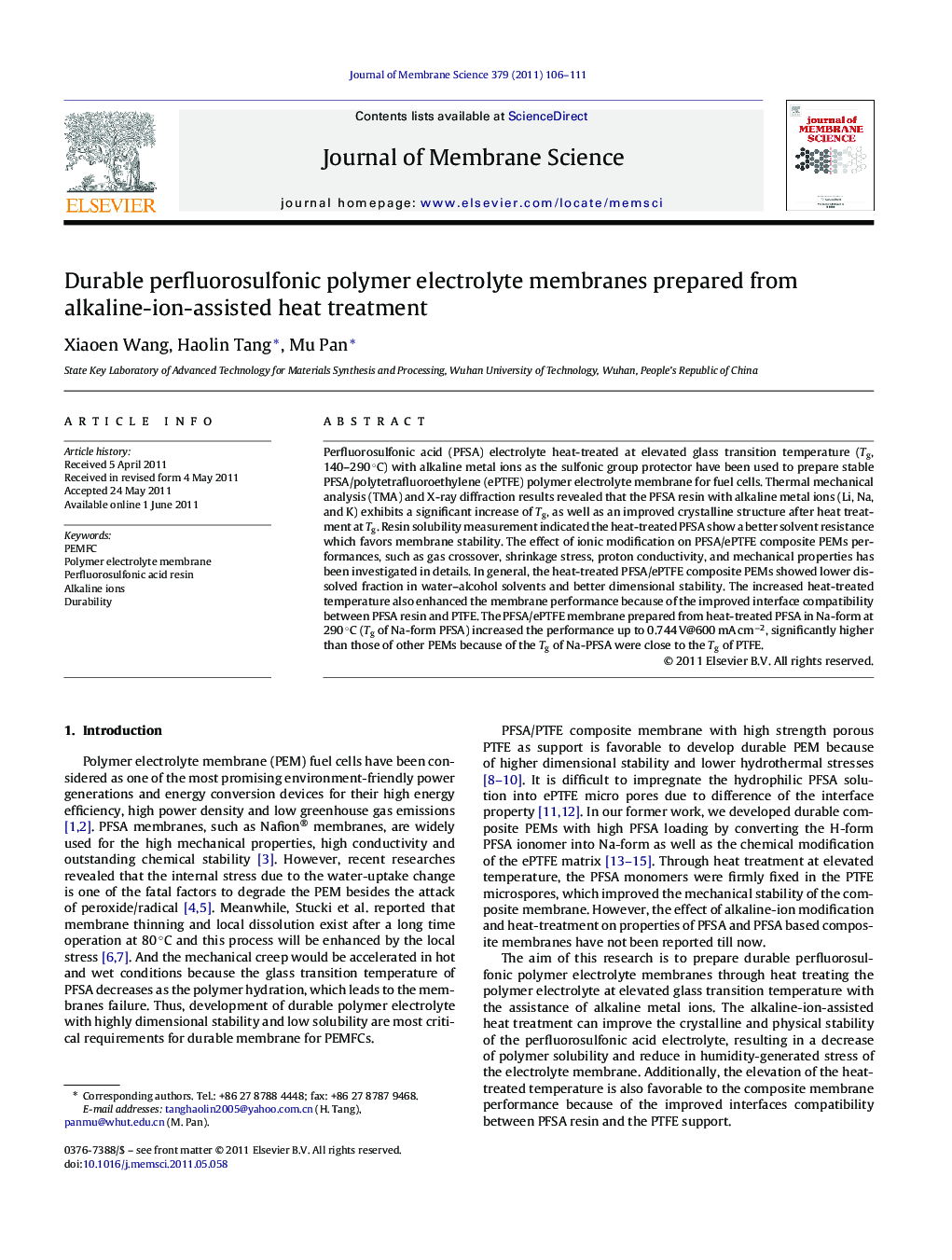| Article ID | Journal | Published Year | Pages | File Type |
|---|---|---|---|---|
| 635528 | Journal of Membrane Science | 2011 | 6 Pages |
Perfluorosulfonic acid (PFSA) electrolyte heat-treated at elevated glass transition temperature (Tg, 140–290 °C) with alkaline metal ions as the sulfonic group protector have been used to prepare stable PFSA/polytetrafluoroethylene (ePTFE) polymer electrolyte membrane for fuel cells. Thermal mechanical analysis (TMA) and X-ray diffraction results revealed that the PFSA resin with alkaline metal ions (Li, Na, and K) exhibits a significant increase of Tg, as well as an improved crystalline structure after heat treatment at Tg. Resin solubility measurement indicated the heat-treated PFSA show a better solvent resistance which favors membrane stability. The effect of ionic modification on PFSA/ePTFE composite PEMs performances, such as gas crossover, shrinkage stress, proton conductivity, and mechanical properties has been investigated in details. In general, the heat-treated PFSA/ePTFE composite PEMs showed lower dissolved fraction in water–alcohol solvents and better dimensional stability. The increased heat-treated temperature also enhanced the membrane performance because of the improved interface compatibility between PFSA resin and PTFE. The PFSA/ePTFE membrane prepared from heat-treated PFSA in Na-form at 290 °C (Tg of Na-form PFSA) increased the performance up to 0.744 V@600 mA cm−2, significantly higher than those of other PEMs because of the Tg of Na-PFSA were close to the Tg of PTFE.
► Perfluorosulfonic acid electrolyte heat-treated at elevated glass transition temperature. ► Increased crystalline structure. ► Decreases the polymer solubility. ► Reduces the humidity-induced stress.
